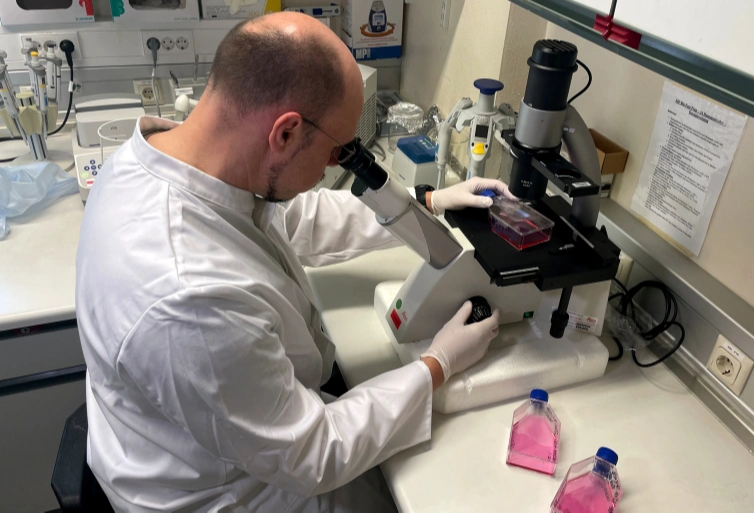
Roman Woelfel, head of the Institute of Microbiology of the German Armed Forces, works in his laboratory in Munich as Germany confirmed on May 20, 2022 that it had detected its first case of monkeypox [Christine Uyanik/Reuters]
Tel Aviv, May 22 (RHC)-- Israel and Switzerland have confirmed their first cases of Monkeypox, joining several European and North American countries in detecting a disease that is endemic to parts of Africa.
In recent weeks, more than 100 confirmed or suspected cases of Monkeypox have been detected in the UK, France, Germany, Belgium, Italy, Portugal, Spain and Sweden as well as in the US, Canada and Australia, raising fears the virus may be spreading.
The outbreak in countries where the virus is not endemic is highly unusual, according to scientists. A spokesman for Tel Aviv’s Ichilov Hospital told AFP on Saturday that a 30-year-old man, who recently returned from western Europe with monkeypox symptoms, had tested positive for the virus.
The Israeli health ministry said over the weekend that the man had been exposed to a person with monkeypox abroad and that he remained in isolation at Ichilov Hospital in mild condition.
Switzerland also confirmed its first detected case of monkeypox on Saturday, a person in the canton of Bern who contracted the virus through “close physical contact abroad”, the canton said in a statement.
The person consulted a doctor because they had a fever and a rash and felt poorly, the canton said, adding that the person was in isolation at home and the illness was developing in a “benign” way. A person they had been in contact with has been informed, the canton added
The virus, which causes distinctive pustules but is rarely fatal, is endemic to parts of central and west Africa. Symptoms include fever, muscle aches, swollen lymph nodes, chills, exhaustion and a chickenpox-like rash on the hands and face.
The virus can be transmitted through contact with skin lesions or droplets from a contaminated person, as well as through shared items such as bedding or towels.
Monkeypox usually clears up after two to four weeks, according to the World Health Organization, which is currently working on further guidance for countries on how to mitigate the spread of the disease.

